General
Rt. Hon. Kadaga Sensitises Mak on EAC Integration Agenda
Published
4 years agoon

On 16th June 2022, Makerere University welcomed the First Deputy Prime Minister and Minister of East African Community (EAC) Affairs Rt. Hon. Rebecca Kadaga to her Alma Mater to deliver a Keynote on the EAC Integration Agenda. The Speaker Emeritus of the 9th and 10th Parliament of Uganda and distinguished Alumna of the School of Law was received upon arrival by Dr. Helen Nambalirwa Nkabala who represented the Chairperson of Council, Mrs. Lorna Magara and the Vice Chancellor, Prof. Barnabas Nawangwe.
Also in attendance were the Permanent Secretary, Ministry of EAC Affairs (MEACA) Mrs. Edith N. Mwanje, Members of Council, Senate and Management, Principals and College Academic Leadership, as well as Professors and the Student Guild.
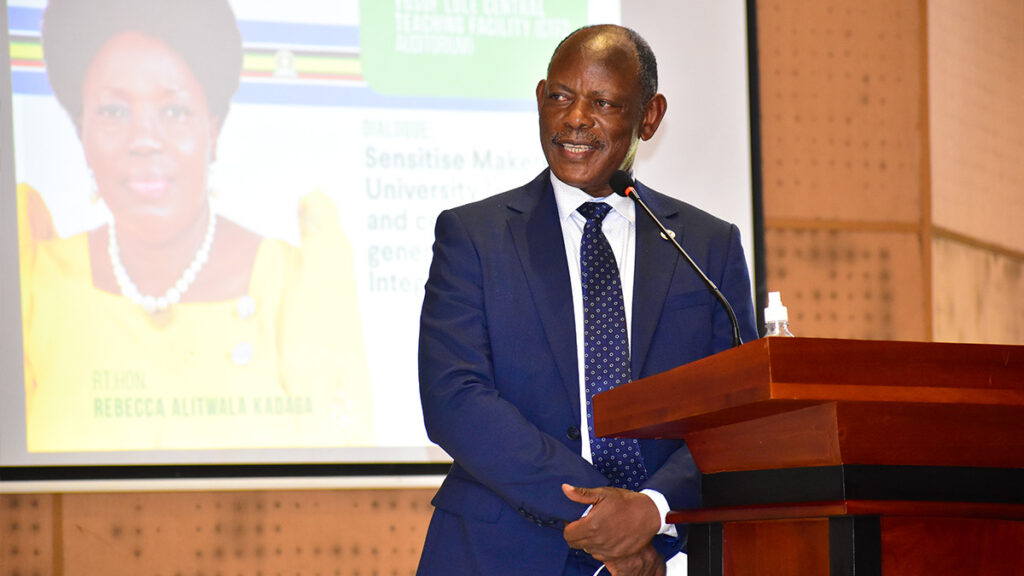
Originally founded in 1967 by Uganda, Kenya and Tanzania, the EAC was dissolved in 1977. It was revived on 7th July 2000 after the Treaty for the Establishment of the East African Community came into force. The EAC is made up of six Partner States namely; Burundi, Kenya, Rwanda, South Sudan, Uganda, and the United Republic of Tanzania. On 29th March 2022, the Democratic Republic of Congo (DRC) was admitted into the EAC as its seventh member and is expected to be full member by September 2022 after completion of the ratification process.
Rt. Hon. Kadaga in her Keynote address noted that the strategic importance for EAC integration is guided by four factors namely;
- Creation of a Large Regional Market
- Strengthening the Security of the Community
- Enhancing Fraternal Relations
- Political Unity
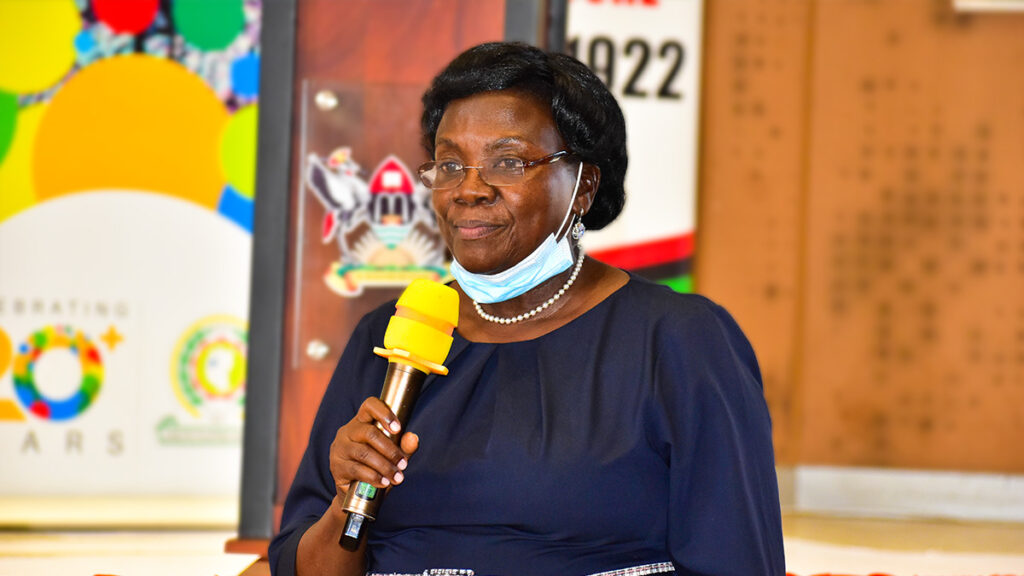
Furthermore, she outlined the Customs Union, Common Market, Monetary Union and Political Federation as four pillars of the EAC. She shared that apart from Political Federation, each of the other three pillars has a signed Protocol that provides a framework of cooperation. The Minister nevertheless said that the Partner States are in the final stages of discussing the critical aspects of Political Confederation as a transitional stage of Political Federation.
To date, the following have been achieved in line with the Political Confederation.
- A regional team of constitutional experts is drafting the EAC Political Confederation Constitution
- The EAC has continued to Monitor and observe elections in all Partner States
- National Early Warning Centres have been put in place
- Women and Youth have been engaged in peace and security initiatives in line with EAC Youth and Gender Policies
- A major EAC Armed Forces Integrated Field Training Exercise is conducted annually
Rt. Hon. Kadaga concluded by stating that the expanded membership of the EAC will provide a big market that will not only increase Foreign Direct Investment (FDI) but also employment opportunities especially for the for the youth. Additionally, the integration would lead to better management of shared natural resources of Partner States such as Lake Victoria, Mountain Elgon and the Rwenzori Mountains.

Furthermore, the First Deputy Prime Minister noted that integration would lead to adoption of the new Common External Tariff that will increase protection of local industries. Citing the East African Crude Oil Pipeline (EACOP) Project as an example, she added that integration will help exploit economies of scale and combine resources to invest in transboundary infrastructure. Estimated to cost USD 3.55 billion the 1,443km EACOP Project will ferry crude oil from Kabaale, Hoima in Uganda to the Indian Ocean Port of Tanga in Tanzania.
She concluded by noting that most importantly, integration will give Partner States a bigger voice when negotiating with giants like China, the European Union (EU) and Russia on matters such as mitigating the negative effects climate change.
In her remarks, Dr. Nkabala thanked Rt. Hon. Rebecca Kadaga for commencing her Ministry’s senstisation programme at her alma mater and paid tribute to the leadership of the EAC Partner States for their vision and commitment to integration and federation.
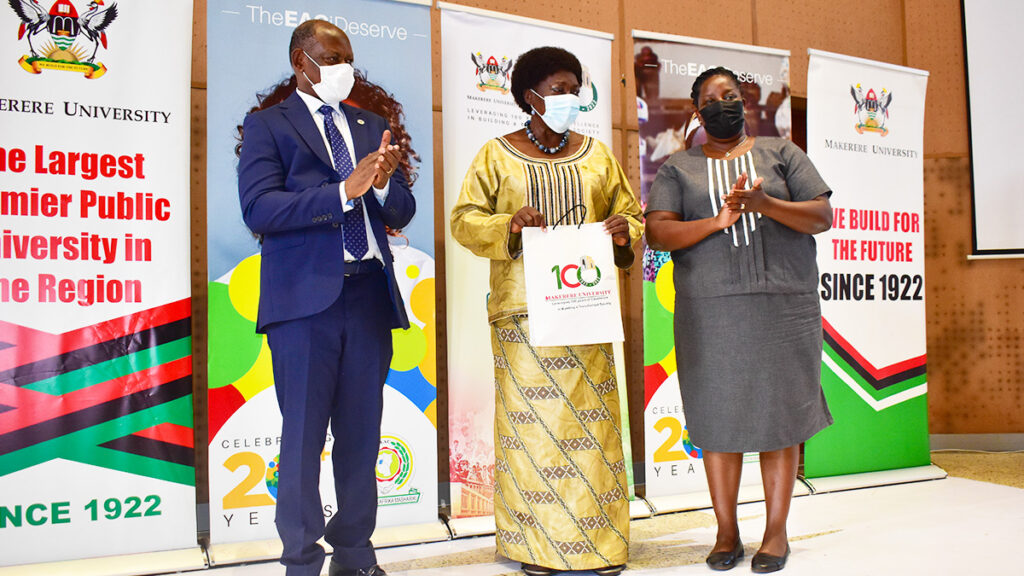
She shared that through her College of Humanities and Social Sciences (CHUSS), Makerere University was contributing to the Integration Agenda by training men and women in the armed forces on the implementation of the UN Security Council Resolutions (UNSCR) 1325, 1820 and 2250. UNSCR 1325 urges all actors to increase the participation of women and incorporate gender perspectives in all United Nations peace and security efforts while UNSCR 1820 condemns the use of sexual violence as a tool of war. UNSCR 2250 emphasises the importance of youth as agents of change in the maintenance and promotion of peace and security.
Dr. Nkabala concluded by underlining Makerere University‘s readiness and willingness to undertake a formal agreement with MEACA to carry out research that informs responses to challenges that we are facing as a regional bloc.
Please see below for the full Keynote Address
You may like
-
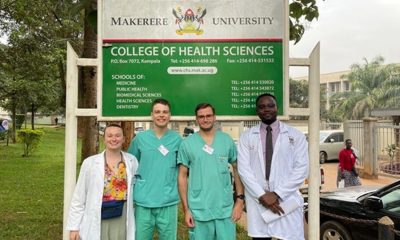

MakCHS Strengthens Internationalization through Strategic Global Partnerships and Mobility
-


Breaking the Silence on Digital and Gender-Based Violence: Male Changemakers Lead Makerere University’s Strides for Change
-
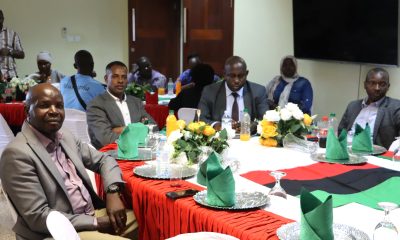

EfD Uganda Marks 2025 Milestones, Sets Strategic Path for 2025–2029
-
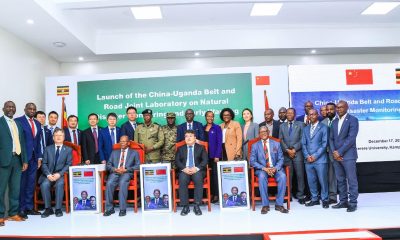

Makerere University and Tsinghua University Launch Landmark China–Uganda Joint Laboratory on Natural Disaster Monitoring and Early Warning
-
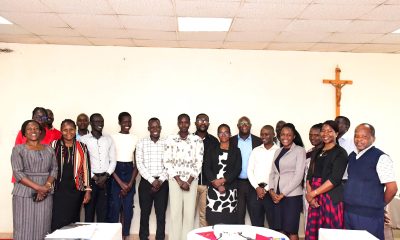

Facilitating Access and Participation through Higher Education Access Programmes and Connected Education for Students with Refugee Backgrounds: A Global South Delphi Study
-
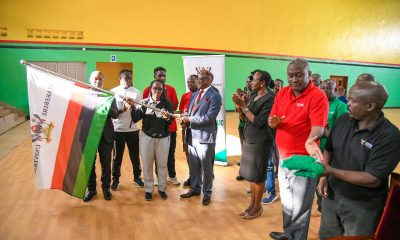

VC Flags off 220 Strong Contingent to 20th AUUS Games
General
Advert for the Position of the Second Deputy Vice Chancellor
Published
3 days agoon
December 30, 2025By
Mak Editor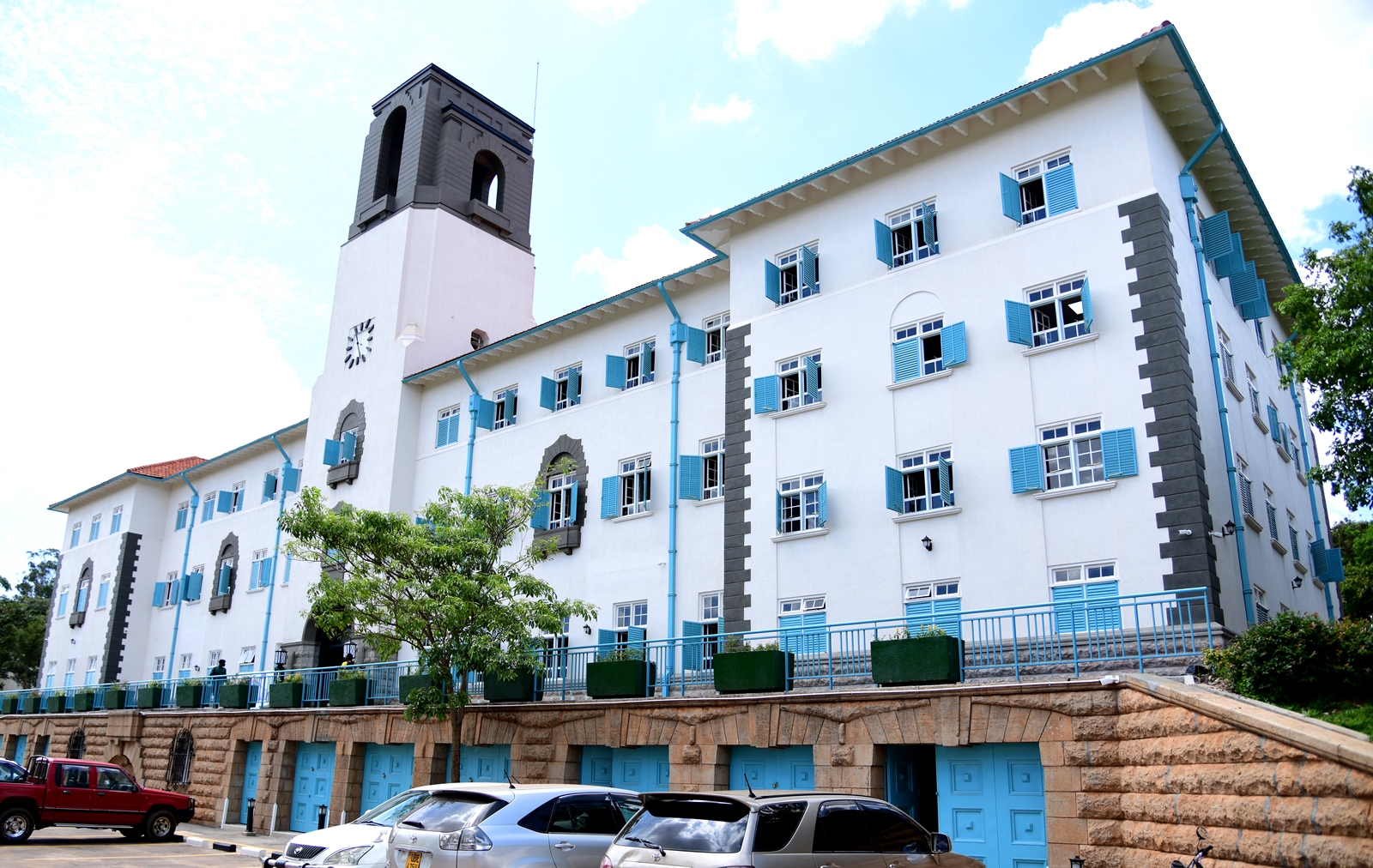
Makerere University is governed by the Universities and Other Tertiary Institutions Act, Cap 262. The University is seeking applications from suitably qualified applicants for the position of Second Deputy Vice-Chancellor. The Second Deputy Vice Chancellor holds a pivotal role in financial governance, institutional planning, and administrative leadership.
1. POSITION: SECOND DEPUTY VICE-CHANCELLOR
2. SALARY SCALE: PU2
3: DUTY STATION: MAKERERE UNIVERSITY
4. ROLE
The Second Deputy Vice-Chancellor will report to the Vice–Chancellor and shall:
- Assist the Vice Chancellor in performance of his or her functions and in that regard shall oversee the finances and administration of the University;
- Be responsible for the Planning and Development of the University and,
- Perform such other functions that may be delegated to him or her by the Vice Chancellor or assigned by the University Council.
5. PURPOSE OF THE JOB
To provide strategic leadership and ensure efficient and sound financial, human and fiscal resources management in the University.
6. DUTIES AND RESPONSIBILITIES
- Provide leadership in Strategic planning and governance, leadership and administrative experience, Human resource and performance Management, Stakeholder engagement and collaboration.
- Provide leadership in preparation and implementation of the University’s recurrent and capital budgets.
- Monitor the development and implementation of the University’s accounting procedures, manuals and other documents relating to financial control and Management as per approved financial regulations.
- Oversee income and expenditure of all income generating units of the University.
- Coordinate the production of the University-wide Financial Reports by Colleges and Units.
- Management of human resources in the University.
- Oversee the management of University Estates and Assets.
7. CANDIDATE SPECIFICATION
- Hold a PhD or any other academic doctorate.
- Be at the rank of associate or full professor level in an institution whose academic ranking is comparable with that of Makerere University as accepted by Senate.
- Be a Ugandan citizen within the age bracket of 40 to 65 years at the time of application.
7.1 Academic Qualifications
- Earned a Ph.D. or equivalent doctorate should be acceptable by Senate.
- At least five years of financial or administrative leadership experience at the level of school dean/director or higher in a higher education institution, public service, or corporate institutions.
- Supervised at least ten (10) postgraduate students (Master’s and Ph.D.) to completion. At least three of the students must be at the PhD level.
7.2 Strategic Planning and Governance
- Experience in leading large administrative teams at the level of dean or higher, demonstrating efficiency and productivity.
- Proven record in developing and executing strategic plans, aligning financial and administrative objectives with institutional goals.
- Evidence of developing and implementing financial policies that have improved financial efficiency, transparency, and risk management.
- Evidence of implementing organisational restructuring or process improvements to ensure operational efficiency.
- Ability to develop and implement institutional policies, ensuring compliance with national higher education and financial regulations.
7.3 Leadership & Administrative Experience
- Minimum 5 years of senior academic leadership in a recognized institution comparable with that of Makerere University, as accepted by Senate.
- Demonstrated experience in managing budgets exceeding UGX 500,000,000=, ensuring financial sustainability and accountability.
- Proven ability to mobilize resources, secure grants, and attract external funding to support institutional growth.
- Experience in conducting financial forecasting, cost control measures, and investment strategies to optimize institutional resources.
- Track record of leading financial audits and compliance assessments in alignment with national and international financial regulations.
- Experience in handling procurement, asset management, and infrastructure development, ensuring transparency and value for money.
7.4 Human Resource and Performance Management
a) Track record of leading workforce planning, recruitment, and talent development strategies, ensuring a high-performance institutional culture.
- Experience in implementing performance-based appraisal systems, leading to improved staff efficiency and accountability.
- Proven ability to foster industrial harmony, resolving labour disputes and improving employer-employee relations.
7.5 Infrastructure Development and Resource Optimization
- Experience in overseeing capital development projects, ensuring timely delivery and cost efficiency.
- Track record of overseeing the maintenance and expansion of university facilities, enhancing institutional infrastructure.
- Proven ability to negotiate and manage contracts for outsourced services, ensuring cost-effectiveness and quality standards.
7.6 Digital Transformation and ICT Integration
- Experience in integrating ICT solutions in financial and administrative operations, improving service delivery and efficiency.
- Evidence steering the automation of financial, procurement, and HR systems, reducing paperwork and improving real-time decision making.
- Proven ability to implement cybersecurity measures that safeguard institutional financial and administrative data.
7.7 Stakeholder Engagement & Collaboration
- Demonstrated experience in building partnerships with government agencies, donors, private sector investors, and international organizations to enhance institutional funding.
- Proven ability to engage faculty, students, and staff in financial decision-making, ensuring transparency and inclusivity.
- Experience in negotiating contracts, partnerships, and collaborations that have led to financial and administrative growth.
7.8 Personal Attributes
- High level of integrity, transparency, and ethical leadership, with a record of financial prudence.
- Strong analytical, problem-solving, and decision-making skills, backed by evidence of successfully managing complex financial and administrative challenges.
- Excellent communication, negotiation, and interpersonal skills, ensuring effective stakeholder engagement.
- A visionary leader with the ability to drive financial sustainability. administrative efficiency, and institutional growth.
8. REMUNERATION
An attractive remuneration package that is in accordance with Makerere University terms and conditions of service.
9. TENURE
The Second Deputy Vice Chancellor shall hold office for a period of five years and shall be eligible for re-appointment for one more term.
10. METHOD OF APPLICATION
Interested applicants are invited to submit their application letters. The following documents shall comprise a complete application:
- A signed letter of application;
- A vision statement;
- Curriculum Vitae with contact details signed and dated by the applicant;
- Copies of required minimum number of publications;
- Certified copies of academic transcripts and certificates;
- Three (3) letters of recommendation;
- Copies of letters of appointment to leadership positions at the level of Dean of a School in a national accredited university or other academic institution;
- A copy of the applicant’s National Identity Card or passport;
- A copy of the last clearance from the Inspector General of Government or other equivalent national body;
- Referees should be advised to send confidential reference letters, addressed to the Chairperson Search Committee for the Position of Second Deputy Vice Chancellor and delivered directly to the address below by 5:00 pm on Tuesday 13th January, 2026;
- The references should cover the following areas: the applicant’s academic credential, experience, leadership, managerial and administrative skills and personal integrity.
Both Hardcopy and Electronic (Email) applications shall be accepted.
- Hardcopy applications: Both confidential letters and sealed applications marked “CONFIDENTIAL: POSITION OF SECOND DEPUTY VICE CHANCELLOR” should be addressed to:
SECRETARY SEARCH COMMITTEE
THE ACADEMIC REGISTRAR
MAKERERE UNIVERSITY
6TH Floor, ROOM 602, SENATE BUILDING
P.O.BOX 7062, KAMPALA, UGANDA
- Electronic media (e-mail) applications should have all the above documents scanned and emailed to search.dvcfa@mak.ac.ug by 5.00 pm East African Standard Time on Tuesday 13th January, 2026.
Please note that:
- Incomplete applications or applications received after the closing date and time will not be considered.
- Only shortlisted applicants shall be contacted.
For more Information and inquiries: Visit our website https://mak.ac.ug/search-for-dvcs OR email us on search.dvcfa@mak.ac.ug OR Call Telephone number: +256-414-532634 during working hours (between 8:00 am to 5:00 pm Monday to Friday).
MAKERERE UNIVERSITY IS AN EQUAL OPPORTUNITY EMPLOYER
Prof. Mukadasi Buyinza
ACADEMIC REGISTRAR
General
Breaking the Silence on Digital and Gender-Based Violence: Male Changemakers Lead Makerere University’s Strides for Change
Published
4 days agoon
December 30, 2025By
Mak Editor
By Eric Tumwesigye and Cynthia Ayaa Komakec
Introduction
Gender-based violence (GBV) remains one of the most pervasive and entrenched human rights violations in Uganda. Within institutions of higher learning—spaces intended to cultivate intellectual rigor, ethical leadership, and civic responsibility—GBV persists in both visible and covert forms, often sustained by silence, stigma, and institutional inertia. As Uganda’s oldest and most influential public university, Makerere University bears a dual responsibility: to respond decisively to these challenges and to model transformative, ethical leadership for the nation.
It is within this context that the Strides for Change walk, led by 16 male changemakers during the global 16 Days of Activism against Gender-Based Violence, emerges as a strategic and symbolic intervention. The initiative addresses both digital and offline forms of violence against women and girls and aligns with the 2025 global theme, UNiTE to End Digital Violence Against All Women and Girls. It reflects a growing recognition that gendered harm increasingly transcends physical boundaries, manifesting in digital spaces in ways that exacerbate the vulnerabilities of female students, staff, and young women across Uganda.

Linking Digital Violence with Physical and Psychological Harm
As Uganda’s digital ecosystem continues to expand, emergent forms of violence have surfaced that intersect with, reinforce, and intensify established patterns of gender-based violence (GBV). Research undertaken by the Makerere University Institute of Gender and Development Studies (IGDS), in collaboration with the Women of Uganda Network (WOUGNET), documents the breadth and complexity of online GBV practices prevalent within the Ugandan context. Their study identifies a wide spectrum of digitally mediated abuses, including the non-consensual dissemination of intimate images (commonly referred to as revenge pornography), online sexual harassment, cyberbullying, stalking, hacking, doxing, digital surveillance, sexist and degrading commentary, trolling, impersonation, identity theft, and threats circulated through social media platforms (IGDS and WOUGNET, 2021, p. 18).
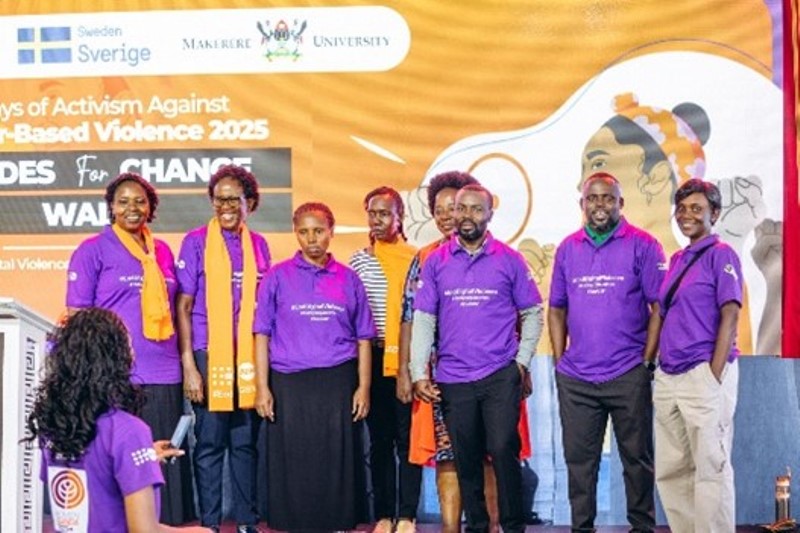
Crucially, these manifestations of digital violence are not confined to virtual environments. Rather, they produce tangible and often severe consequences that extend into survivors’ offline lives. Empirical evidence indicates that women are disproportionately targeted by online GBV compared to men, reflecting entrenched gendered power asymmetries that are reproduced and amplified within digital spaces (IGDS and WOUGWET, 2021, p. 34). Survivours frequently experience profound psychological harm, including heightened anxiety, depression, chronic fear, and diminished self-esteem (Monteagudo Martinez et al, 2020). In response to persistent victimisation, many withdraw from social, academic, and professional spheres as a protective strategy, while others face significant economic repercussions, such as job loss or reduced income, arising from stigma, reputational damage, and trauma.
Within university settings, the consequences of digital violence may escalate further, in some instances culminating in threats of, or exposure to, physical harm (Pew Research Center, 2014). Oksanen et al. (2022) demonstrate that online hostility and harassment within academic environments are associated with acute psychological distress and deteriorating social relations at work. As the authors observe, “victims experienced higher psychological distress and lower perceived social support at work—indicative of social isolation and disengagement in academic roles” (Oksanen et al., 2022, pp. 541–567). Such findings underscore the manner in which sustained online harassment undermines not only individual well-being but also academic participation and institutional belonging.

Similarly, Cassidy, Faucher, and Jackson’s (2017) examination of cyberbullying in higher education institutions highlights the pervasive sense of insecurity engendered by digitally mediated abuse. Their study reports that “victims reported stress, anxiety, and threats to safety, reinforcing that harassment in academic settings is not merely emotional but also threatens well-being” (Cassidy, et al, 2017, p. 888). These dynamics contribute to academic disengagement, social isolation, and long-term reputational damage, with potentially enduring implications for future employment and career trajectories. Taken together, this body of evidence illustrates that digital violence functions as an extension of physical and emotional abuse, forming part of a broader continuum of harm. By eroding women’s psychological health, social participation, academic engagement, and professional prospects, online GBV undermines women’s safety, dignity, and capacity to participate fully in public and academic life. Addressing digital violence, therefore, is not merely a matter of regulating online conduct but a critical component of broader efforts to combat gender-based violence in all its interconnected forms.
The Role of Male Changemakers: Transforming Culture and Accountability
The Strides for Change campaign strategically positions men as visible allies in gender equality advocacy—not to displace women’s lived experiences, but to confront and dismantle patriarchal norms from within. Male changemakers play a pivotal role in advancing cultural transformation and accountability through three interrelated contributions.
First, they reframe gender-based violence (GBV) as a structural and societal concern rather than a “women’s issue,” underscoring its profound implications for human rights, social justice, and national development. This perspective is exemplified by Dr. Jimmy Spire Ssentogo, one of the 16 male changemakers commemorated during the 16 Days of Activism Against Gender-Based Violence. Drawing on his experience as an active social media user, he highlights the increasing prevalence of body shaming, slut shaming, and other forms of online abuse that silence girls and women and undermine their meaningful digital participation. He calls on all social media users to recognise, challenge, and reject such harmful language, emphasising that the creation of safe and inclusive online spaces for women is a shared societal responsibility.


Second, male changemakers model positive and accountable masculinities by publicly rejecting norms that equate masculinity with dominance, entitlement, or complicity in abuse. Ugandan musician and producer Navio articulates this stance by acknowledging the cultural power of artistic expression, stating that his lyrics will not perpetuate harm and that consent represents “the rhythm of respect”—not only in creative spaces, but in everyday life. Such public commitments challenge harmful gender norms while offering alternative, ethical frameworks for masculine identity.
Third, male changemakers broaden the reach and effectiveness of advocacy by engaging other men in critical dialogue, often within spaces that women may be unable to access safely or strategically. This engagement is strengthened through intellectual and academic platforms, including presentations at the Makerere University Men’s Forum, where evolving scholarship on masculinity is examined and translated into practical strategies for social transformation. Through this combination of peer engagement, cultural influence, and scholarly reflection, male changemakers contribute meaningfully to the collective effort to prevent GBV and advance gender justice.
Institutional Commitments to Gender Equality and the Elimination of Sexual Harassment
Through the Gender Mainstreaming Directorate (GMD), Makerere University continues to demonstrate institutional leadership in advancing gender equality and addressing sexual harassment. The launch of the Strides for Change campaign reaffirmed the University’s commitment to the following priority areas:

Strengthening Reporting and Accountability Mechanisms
Makerere University has established confidential, survivour-centred reporting and redress systems to ensure the timely investigation and adjudication of GBV cases. These mechanisms enforce stringent sanctions, including disciplinary action, against individuals who engage in sexual exploitation, harassment, or the solicitation of sexual favours in exchange for academic or professional advancement. The GMD supports the continuous operationalisation and improvement of these accountability frameworks.
Expanding Psychosocial and Legal Support for Survivours
The University is committed to enhancing access to high-quality psychosocial care, legal aid, and referral services for survivours of GBV. The GMD coordinates capacity-building initiatives for service providers and strengthens partnerships with relevant institutions to ensure comprehensive and survivours-centred support.
Institutionalising Male Allyship and Transformative Engagement
Makerere University is advancing a structured approach to male allyship by formalising male and female champion networks that collaborate in dialogue, advocacy, and behavioural change initiatives. This includes integrating men into gender training programmes and encouraging visible public commitments, such as participation in the Strides for Change walk. The GMD leads the design, implementation, and evaluation of these transformative engagement strategies.
Conclusion
Makerere University’s Strides for Change walk and the male changemakers programme, implemented in partnership with the Embassy of Sweden and the United Nations Population Fund, represent a significant milestone in the fight against gender-based violence. By confronting the interconnected realities of digital and physical violence, addressing entrenched patterns of sexual harassment, and mobilising male allies as agents of change, the University sets a compelling precedent for institutional and national transformation.

Ending GBV is not solely a policy imperative; it is a cultural, structural, and ethical commitment. These initiatives align with Makerere University’s broader strategic commitment to inclusive excellence, ethical leadership, and safeguarding the well-being of its academic community.
When men stand in solidarity with women, when institutions centre survivours voices, and when society collectively rejects the normalisation of violence, Uganda moves closer to a future in which every woman and girl can pursue her aspirations free from fear, intimidation, and harm. The Strides for Change campaign is therefore more than a march—it is a call to conscience, a model for action, and a promise of a safer and more just society for generations to come.
Acknowledgement
The Gender Mainstreaming Directorate, Makerere University, extends its appreciation to the Embassy of Sweden in Uganda, the United Nations Population Fund (UNFPA), and all development partners who participated in the Strides for Change walk and the series of activities conducted during the 16 Days of Activism against Gender-Based Violence. Together, we reaffirm our commitment to a comprehensive, 360-degree approach towards achieving zero tolerance for gender-based violence.
References:-
- Cassidy Wanda, Faucher Chantal and Jackson Margaret (2017): Adversity in University: Cyberbullying and Its Impacts on Students, Faculty and Administrators, International Journal of Environmental Research and Public Health journal, Article 14(8) page 888
- Institute of Women and Development Studies and Women of Uganda Network (2021): Not Just a Trend: Assessing the Types, Spread and the Impact of Online Gender Based Violence in Uganda, Research Report.
- Monteagudo Martinez (2020): Cyberbullying in the University Setting. Relationship With Emotional Problems and Adaptation to the University, Frontiers in Psychology journal, Article: 10:3074
- Oksanen et al. (2022) — Hate and harassment in academia: the rising concern of the online environment, Vol. 84, pages 541 – 567
- Pew Research Center (2014): Part 4: The Aftermath of Online Harassment, Pew Research Center, Published on October 22, 2014
Eric Tumwesigye and Cynthia Ayaa Komakec are the Senior Gender Officer and Gender Officer respectively at the Gender Mainstreaming Directorate, Makerere University
General
UNDP and JNLC hold training in Fort Portal: Participants equipped with skills in Advocacy and Gender Equality, Team Building, Inclusive Leadership, and Financial Literacy
Published
4 days agoon
December 30, 2025By
Mak Editor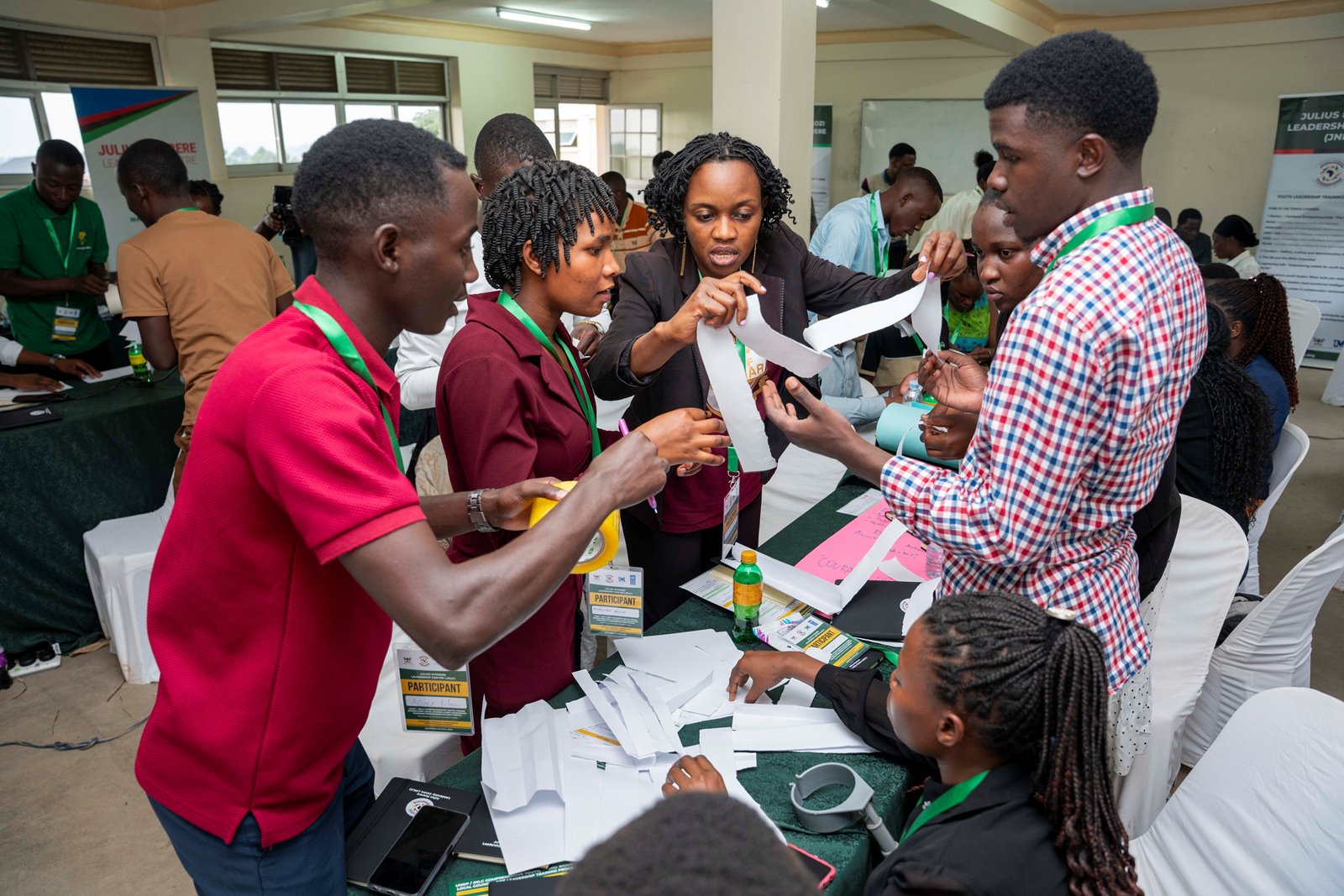
By Charles Iga
Fort Portal-Uganda: On 5th December 2025, more than 70 emerging leaders convened to participate in the second day of the United Nations Development Programme (UNDP) and the Julius Nyerere Leadership Centre (JNLC) comprehensive leadership training for youth, young women and local councilors.
Hosted at Mountains of the Moon University (MMU) in Fort Portal, the training focused on deepening the leadership skills of young leaders as they navigate the increasingly complex governance and development landscape.
Building on the knowledge acquired during the first day of the workshop, on the second day (5th December 2025), the participants engaged in interactive sessions covering problem-solving, team building, advocacy, gender equality, media literacy, self-marketing, and financial literacy in leadership.
The discussions challenged the young leaders to sharpen their mindsets, broaden their spheres of influence, and strengthen their capacity to champion inclusive and sustainable community development.
Advocacy and Gender Equality: Understanding gender dynamics and women acceptance in leadership
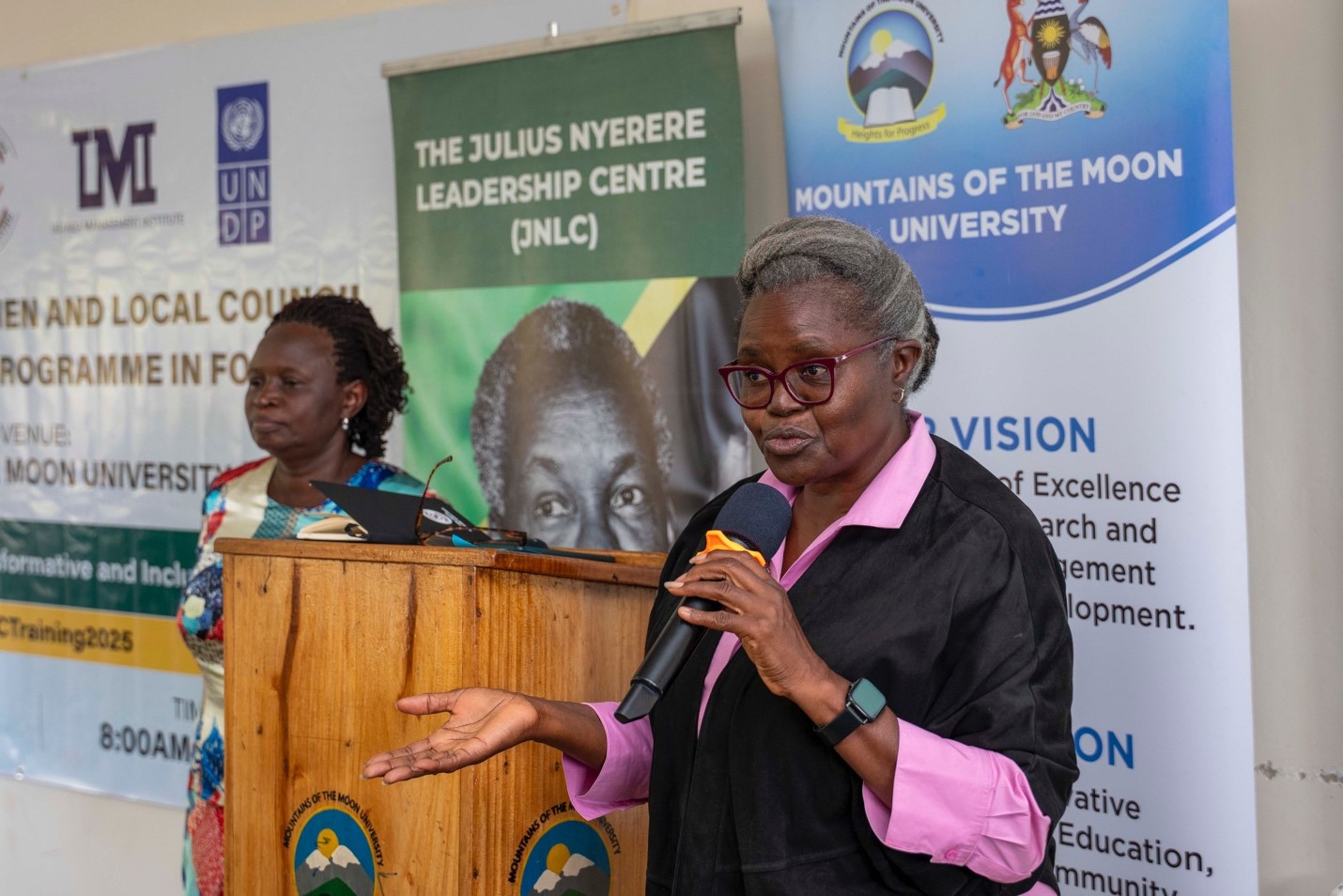
Delivering an informative presentation titled, Advocacy and Gender Equality: Understanding Gender Dynamics and Women’s Acceptance in Leadership, the Guest Speaker- Professor Consolata Kabonesa highlighted that women remain underrepresented in leadership due to entrenched power structures shaped by societal norms and cultural traditions.
Professor Kabonesa emphasized that leadership depends not only on individual ability, but also on the systems that determine who is recognized and legitimized as a leader.
“The roles of women in leadership remain under-represented because power is shaped and perpetuated by societal norms and traditions that socialize women and men differently. These norms influence how leadership roles are assumed and who is considered legitimate to lead,” she explained.
How Socialization Shapes Leadership Pathways of Boys and Girls
Professor Kabonesa highlighted that socialization shapes leadership opportunities, with boys typically encouraged to be assertive, while girls are guided towards empathy and collaboration. This unequal conditioning reinforces gender stereotypes, often undermining women’s authority and sustaining male-dominated leadership structures. She advocated for mentorship as a vital tool, illustrating how role models help girls balance assertiveness with empathy.
She noted that early participation in councils, debates, and leadership roles develops skills, challenges biases, and empowers girls to pursue leadership in traditionally male-dominated fields. She articulated that integrating discussions on gender dynamics into educational curricula equips young girls to recognize and challenge societal norms that limit their potential, while fostering resilience against the discouragements they may face.
Inclusive Leadership: Engaging both Women and Men
Professor Kabonesa articulated that achieving gender equality in leadership is not solely an issue for women, but a collective responsibility. She underscored that balancing participation between men and women fosters mutual understanding, shared accountability, and collaborative problem-solving. She pointed out that inclusive leadership models prevent the isolation of women’s perspectives, ensures all voices are heard, and ultimately contribute to stronger, more equitable, and sustainable leadership that reflects the diversity and potential of society.
“Balancing participation across genders is critical. It helps us understand gender issues collectively, prevents the isolation of women’s experiences, and encourages men and women to address biases together. This approach will ensure that women are not left behind and will foster inclusive leadership models that benefit society as a whole.”
Leading within the Existing Leadership Structures
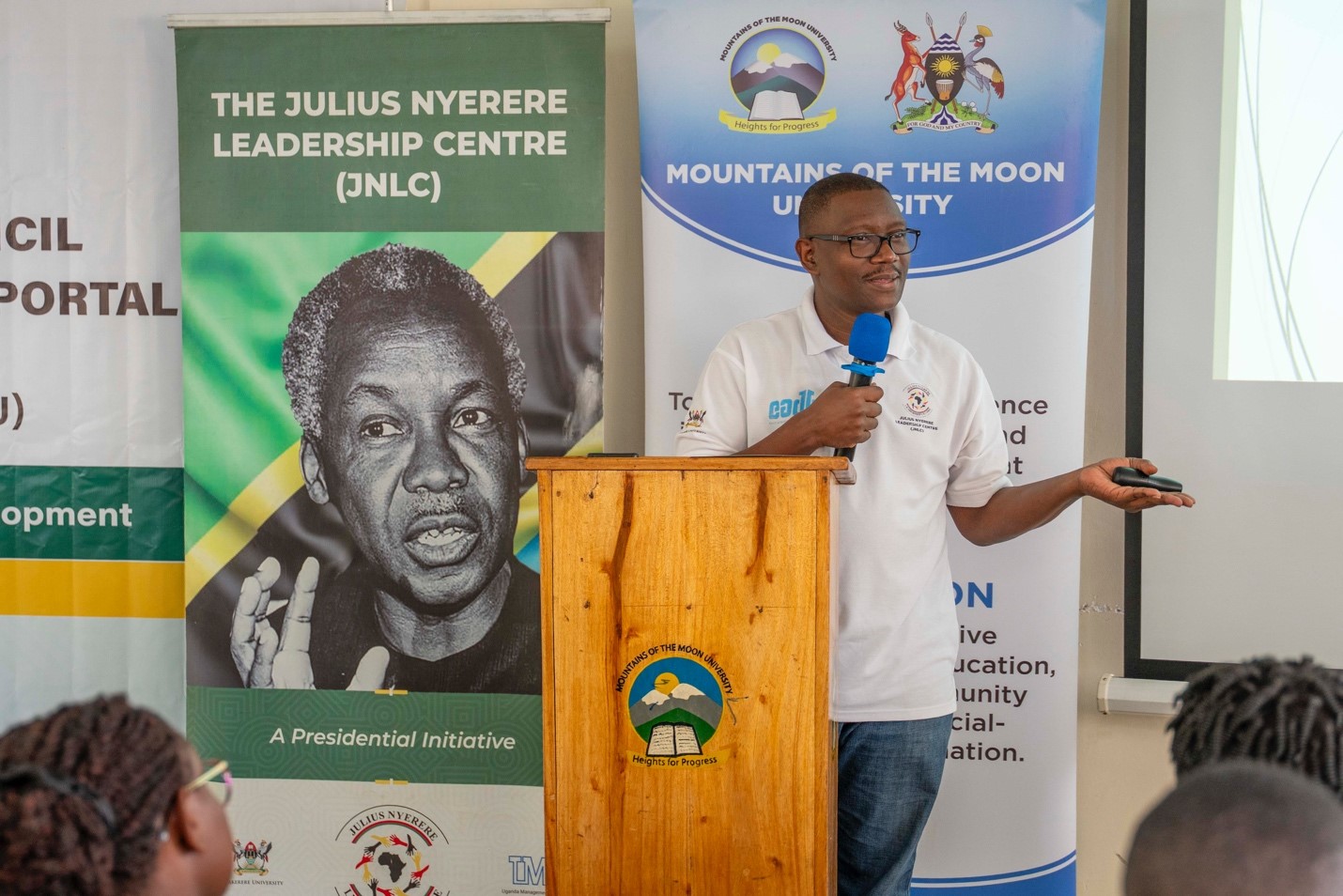
Expounding on the existing leadership structures and the power of relationships, Mr. Henry Kasacca, the Director of Dialogue and Democracy, explained that people support leaders not for their titles, but for the meaningful connections they build. He stated that effective leadership depends on listening, connecting, and collaborating across diverse spaces. “Leadership is not about the title you hold; it is about the relationships you build. There are people who will support you simply because you have invested time in connecting with them,” he said.
Mr. Kasacca stressed that leaders must navigate the organizational power structures by understanding where influence lies and how decisions are made. He noted that strategic thinking, long-term planning, and aligning ideas with action are key to effective leadership, while qualities such as listening, collaboration, kindness, and clarity of purpose are essential for achieving meaningful organizational and community impact.
He urged participants to maintain a clear vision, develop well-crafted plans addressing both immediate and long-term needs, and combine relationship-building with an understanding of power dynamics to become effective, and inclusive change-makers.
Strategic Thinking: Decision making and Problem Solving Techniques
Guiding participants on strategic thinking for decision-making and problem-solving techniques for effective leadership, Ms. Allen Baguma, a facilitator at JNLC and Founder of the Future Learning Centre (FLC) emphasized that strong leadership is anchored in intentional thinking, clear judgment, and the ability to translate vision into well-considered action.
“A strong team is built on clearly defined roles, an understanding of team dynamics, and psychological safety. When people feel safe to speak, contribute ideas, and make mistakes without fear, teams perform better,” she said.
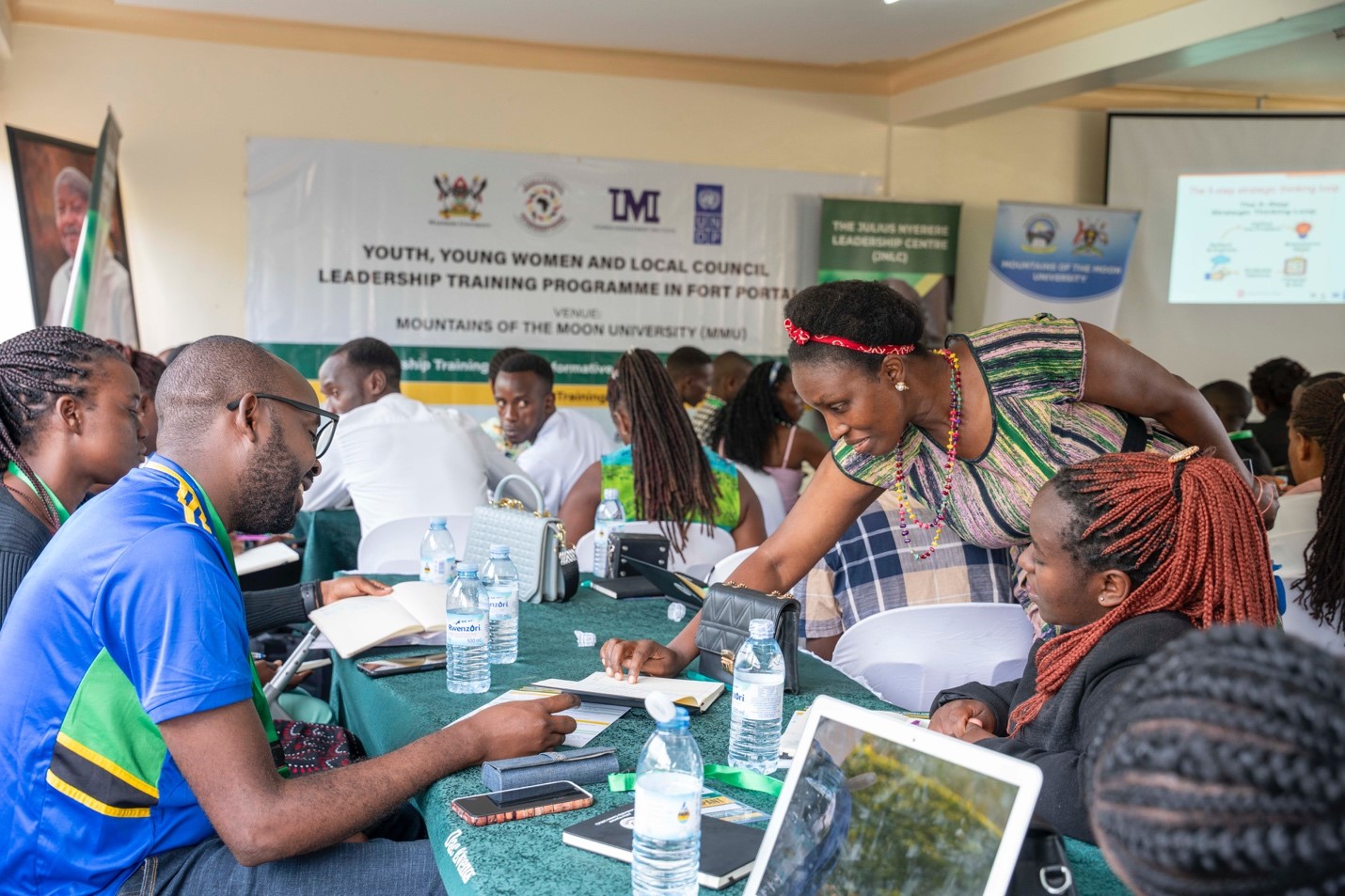
Building Strong Teams through Clarity and Trust
Ms. Baguma emphasized the importance of clearly defined roles within teams, explaining that role clarity enhances accountability, minimizes conflict, and boosts overall performance. She observed that effective leadership requires understanding of team dynamics and fostering psychological safety, where members feel valued, respected, and confident to share ideas without fear of judgment.
She added that effective team building fosters social interaction, a sense of belonging, and a shared pro-social purpose. She noted that teams perform best when individuals are united by common goals and mutual trust.
Leadership growth across the five (5) levels
Citing John Maxwell’s five levels of leadership namely position, permission, production, people development, and pinnacle, Ms. Baguma explained that leadership growth is a progressive journey, moving from reliance on position to influence built through relationships, results, people development, and ultimately, value-based leadership that inspires others beyond formal structures.
Applying Strategic Thinking to Real-Life Challenges
Ms. Baguma guided participants through a practical exercise on strategic thinking, tasking them to identify personal challenges, explore innovative solutions, and evaluate their feasibility and impact. The exercise highlighted the importance of strategic decision-making in enabling leaders to address both personal and community challenges effectively.
Team Building for Effective Leadership

Mr. Ronald Ssazi, a facilitator and leadership trainer revealed that leadership extends beyond authority and depends on creating genuine connections. He stressed that building a strong and committed team involves engagement of members, which emotionally sparks curiosity and draws people in.
Mr. Ssazi explained that storytelling bridges attention to understanding. He illustrated this with the story of the youngest king of the Toro Kingdom, crowned at the age of three and now navigating life as a father at 33. Such narratives, he observed, showcase growth, resilience, and cultural awareness, humanizing leaders and making leadership relatable. “Leadership is not merely a title, but a journey of responsibility and influence,” he said.
He emphasized that leadership thrives in communities. Effective leaders, he explained, consistently share updates, insights, and experiences with their teams. Strategic use of social media, for example, allows leaders to post short, regular updates capturing daily activities, which builds a loyal and engaged audience that evolves into a network supporting initiatives, sharing knowledge, and amplifying impact.
“Leadership is not solitary; it thrives in communities. Effective leaders consistently share updates, insights, and experiences with their teams and followers. When used strategically, social media becomes a powerful tool for team building,” he said.
Preserving Culture while embracing modernity and team building
Mr. Ssazi highlighted that modern leaders have unprecedented resources at their disposal. He explained that tools such as Artificial Intelligence (AI), social media analytics, and online platforms can be used to strengthen teams. AI, he noted, can help craft content that resonates with audiences and analyze engagement to refine communication strategies. He stressed that leaders who effectively harness these tools can expand their reach and influence while remaining authentic and true to their values.
Mr. Ssazi emphasized that effective leadership balances modern strategies with cultural preservation, using community history and traditions. “Team building and leadership are about values and vision, balancing modern strategies with cultural heritage to foster pride, cohesion, and inspired and well-rounded teams.”
He stated that whereas true leadership is demonstrated through action, effective team building requires creation of genuine opportunities for participation and contribution. “Leaders who share opportunities, invite collaboration, and encourage feedback, transform their teams into active contributors,” he said. He added that assessing engagement, adapting strategies, and celebrating achievements fosters a culture of involvement and accountability.
Media Literacy: Promoting and Marketing Leadership through Social Media
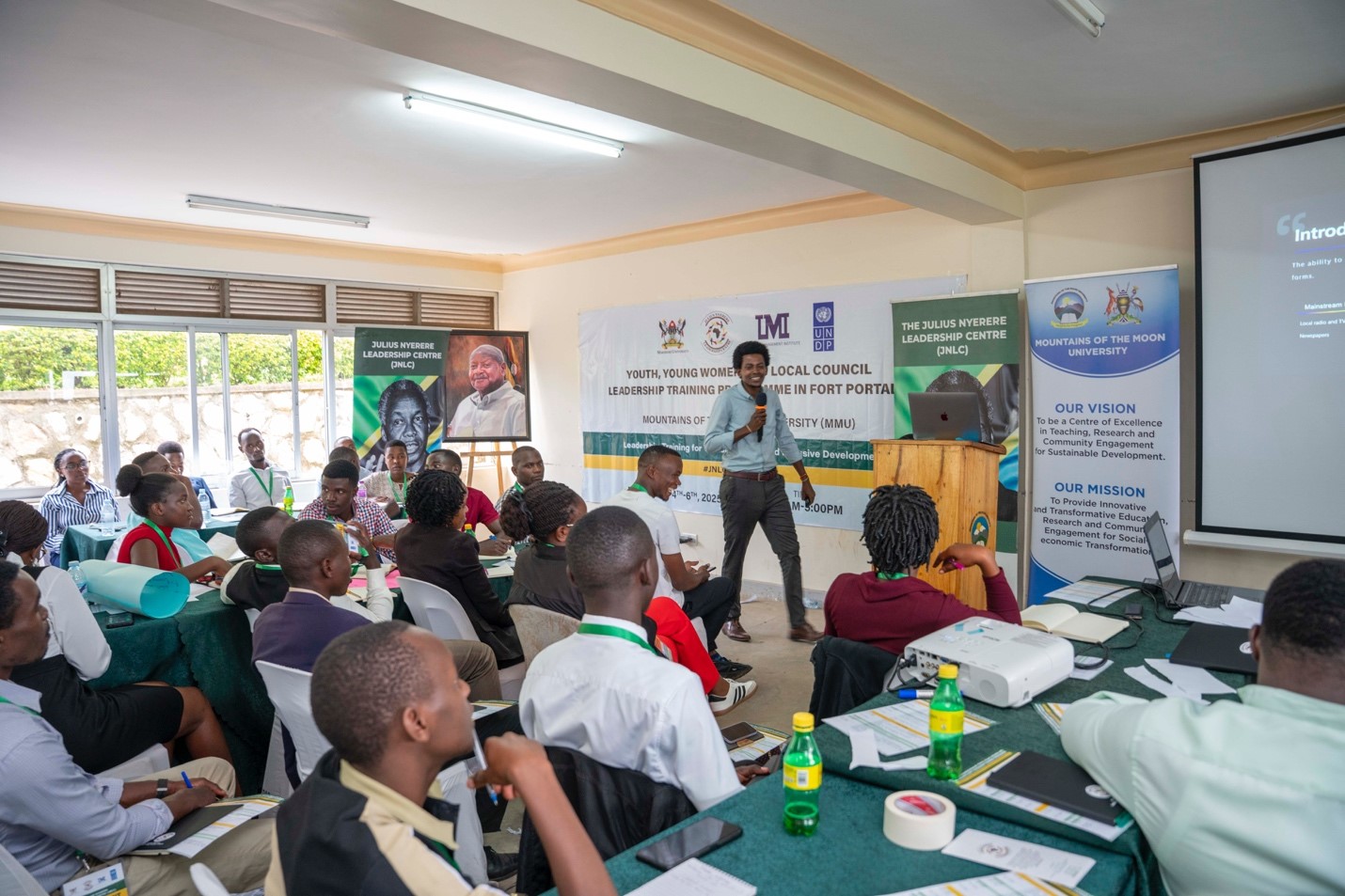
Describing digital competence as an essential leadership skill, Mr. Ivan Ssegawa Sebastian, rallied participants to effectively utilize social media to promote and market their leadership roles and activities. He observed that most of the participants had smartphones, and were using social media platforms such as Facebook, WhatsApp, LinkedIn, X, Instagram, and TikTok. Noting that the key challenge was not access, he challenged the participants on the intentional, responsible and strategic use of social media tools.
Mr. Ssegawa underscored the influence of social media, citing its vast global and national reach and its role in driving social and political movements. He described the Internet as a new battleground for leadership visibility, and provided guidance on the ethical use of artificial intelligence. He tipped the participants on authentic personal branding and effective content creation using emotion, story-telling, and a clear call to action.
Financial Literacy in Leadership: Managing financial resources for Effective leadership
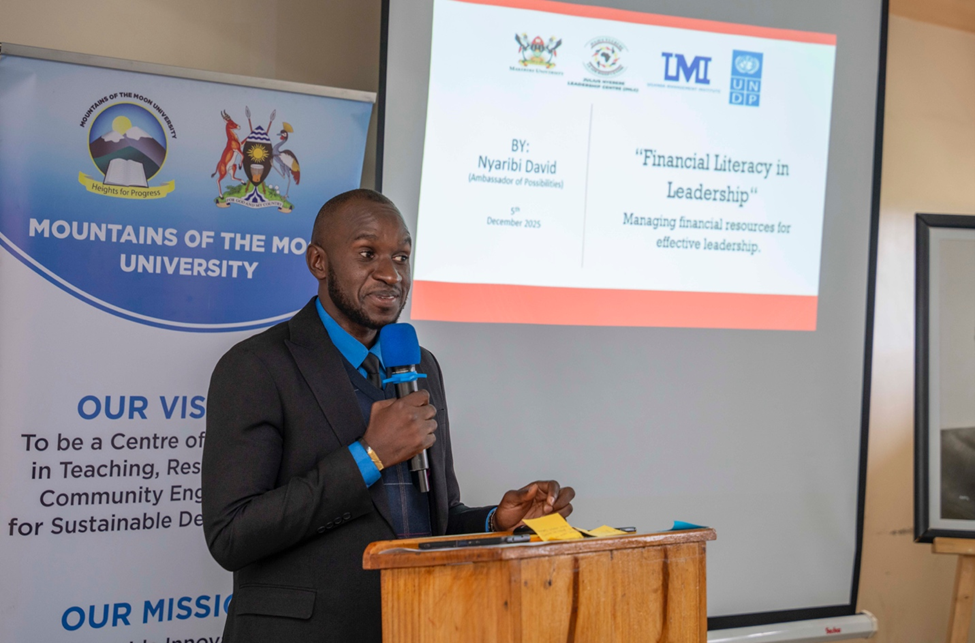
Mr. David Nyaribi, Specialist at ActionAid International, explored the vital connection between financial literacy and effective leadership. During this session, Mr. Nyaribi focused on equipping participants with essential skills to manage financial resources effectively, both at a personal level, and in leadership roles.
He reminded participants that every leader must navigate the reality of unlimited wants and limited resources—especially time and money. “You may acquire more possessions in life,” he cautioned, “but time once lost is gone forever.”
He described the four dimensions that every human being must manage namely physical, cognitive, spiritual, and socio-economic. He emphasized that the socio-economic aspect, which includes financial capacity, is inseparable from leadership. Quoting Tony Robbins, he reiterated: “You either master money, or money masters you.”
The Flight Analogy: How Financial Choices Shape Life Stages
Mr. Nyaribi used a flight analogy to indicate how financial decisions shape life’s stages. From Preparation (0–20 years), building values, skills, and education, to Take-off (20–30 years), where career choices and earnings begin. Stability (30–50 years) is for investing and building systems, Descent (50–60 years) for consolidating and planning succession, and Landing (70+ years) for reflection and enjoying the results.
Impressed that most of the participants in the UNDP-JNLC leadership training workshop were in the preparation or take-off stages, Mr. Nyaribi advised them to invest in education, skills, and self-development. “Many people struggle later because they wasted their take-off stage,” he revealed.
Pillars of Personal Finance every leader must master
Mr. Nyaribi reminded the participants that financial literacy is not just a personal asset, but a leadership necessity. Underscoring the power of discipline and mindset, he urged young leaders to focus on both earning money and building true wealth-assets that empower them to uplift their communities. Mr. Nyaribi highlighted five (5) core financial principles that are essential for responsible leadership:
- Earning through either services or products;
- Saving first as a disciplined priority rather than keeping what remains after spending;
- Investing to turn savings into income-generating assets;
- Spending wisely to avoid living beyond one’s means; and
- Protecting gains through careful planning and accountability.
Trending
-

 Business & Management2 weeks ago
Business & Management2 weeks agoEfD Uganda Marks 2025 Milestones, Sets Strategic Path for 2025–2029
-
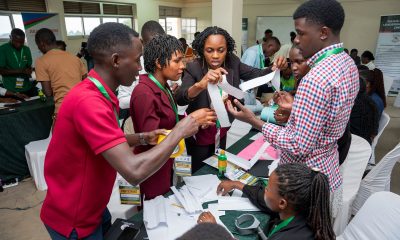
 General4 days ago
General4 days agoUNDP and JNLC hold training in Fort Portal: Participants equipped with skills in Advocacy and Gender Equality, Team Building, Inclusive Leadership, and Financial Literacy
-
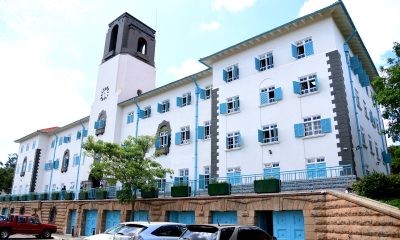
 General3 days ago
General3 days agoAdvert for the Position of the Second Deputy Vice Chancellor
-

 General4 days ago
General4 days agoBreaking the Silence on Digital and Gender-Based Violence: Male Changemakers Lead Makerere University’s Strides for Change
-

 Health4 days ago
Health4 days agoMakCHS Strengthens Internationalization through Strategic Global Partnerships and Mobility
